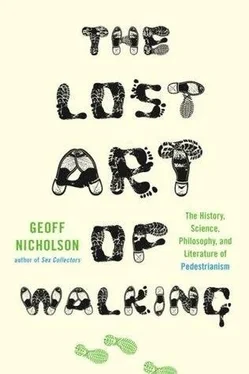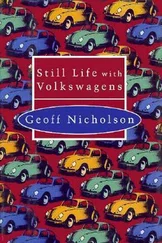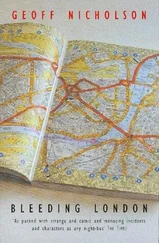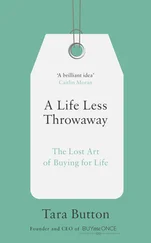During the busiest part of the day I wasn’t so much looking at people as looking out for them, trying to avoid being bumped into, knocked aside, trampled underfoot. This, of course, applied to everyone else, too, and resulted in some general bad temper. People around me were getting annoyed because walking was becoming so difficult. It was becoming so difficult because of all the other people who were there, also walking, also having difficulties, also becoming annoyed.
You couldn’t have called it chaos exactly, since there was no slide toward entropy, no heading toward a state of lesser organization. In fact, there was a great deal of steely purpose about many of the walkers, and there wasn’t anything random about it. Everyone looked determined, like they were on a mission, like they had to get somewhere fast. They wished they were already there, and yet they were thwarted and frustrated by their fellow pedestrians.
As the day ended and the stores closed, garbage bags filled with commercial waste had been built into slack pyramids at intervals along Oxford Street. Each pyramid had its own scavenging homeless person. The bags were semi-transparent, which made it easier to see the contents and determine which bags needed to be ripped open.
The London rush hour came and went. It was a thing I was well familiar with from my days working on and off Oxford Street: a frantic, but not quite genuine, desire to get away, to go home, to draw a line across the day. But this was regularly undercut by a reluctance to engage with the rush at all — and so people chose not to go home but to find a pub or bar instead, to hang out with people from work and complain about work and delay the inevitable. At eight o’ clock there were plenty of people on the street who’d spent a couple of hours in the pub and were now going home a bit drunk, a bit late, dashing along, working up excuses for when they got there, chasing after buses and missing them, cursing as though this was the worst thing that had ever happened to them in their whole lives.
I set out for my last transit at a little before eleven o’clock at night. Oxford Street was still well populated with people coming out of pubs, restaurants, burger bars — some finally heading home and walking to bus stops and tube stations or trying to flag down taxis. Others were looking for somewhere to carry on partying.
A few people were the worse for drink, but most seemed better for it, mellowed and easygoing, strolling, enjoying the warm night air, a lot of couples holding hands, one or two kissing in shop doorways. A lone, lanky, big-eyed bookish girl was coming out of a Borders bookstore just as it was closing, the kind of girl who gives hope, and then disappointment, to lone bookish boys everywhere. Two excited Italian gay boys had their digital cameras out and were photographing the window displays in some of the clothes shops — they looked deliriously happy.
It could have made you feel melancholy if you were that way inclined — walking alone and seeing all these people with significant others — and usually that’s very much the way I am inclined, but the fact that I had a reason to be walking alone, that I was involved in my own endlessly strange project, made all the difference in the world. It made it all right. I was a walker, I was a writer — I had a double purpose, and no need, now at least, to feel lonely in my solitary walking.
The irony of all this, not lost on me even then, was that I had done the transits, completed my self-imposed mission, walked the journey of twenty or so miles, and I was right back where I’d started. Essentially I had got nowhere.
Had I made Oxford Street my own? Had I redeemed or reclaimed anything? Well, yes and no. Oxford Street remains unpossessed and unclaimed, but that means it’s still available. It’s yours for the taking. It’s promiscuous. It’s anybody’s. In the course of the day I’d walked with and in the footsteps of a multitude of people, but I knew that I must be one of the very few who had ever walked twenty miles back and forth on Oxford Street in a single day. The perversity of this pleased me no end.
♦
At the time when I made my Oxford Street transits, and indeed when I first wrote the above, I was unaware that Virginia Woolf had written an article called ‘Oxford Street Tide’. It was one of six essays she wrote for Good Housekeeping magazine in 1931: they’re collected in a very thin volume called The London Scene .
Now, Virginia Woolf is not exactly an open book to me. In the past I’ve forced myself to read her novels, including Mrs. Dalloway , which some regard as a great London walking novel, though not me. Mrs. Dalloway is so little of a walker that the very idea of having to walk to the florist is an incredible excitement that sets her off thinking, ‘What a lark! What a plunge!’ You’d slap her, wouldn’t you? The critic John Sutherland is similarly unimpressed and, devastatingly, calculates that to get round her circuit in the allotted time she must have taken a taxi.
In ‘Oxford Street Tide’, Woolf knows she shouldn’t like Oxford Street — it’s so cheap and gaudy and full of plebs, awash with people ‘tripping, mincing, in black coats, in satin dresses’, so downright vulgar. But then suddenly, to her great credit, she realizes she can’t sneer at it completely. She notices something appealing in the energy and vulgarity of the place. She detects something Shakespearean about it and that makes it all right.
Then, on a street corner, she writes:
‘Tortoises repose on litters of grass. The slowest and most contemplative of creatures display their mild activities on a foot or two of pavement…One infers that the desire of man for the tortoise, like the desire of the moth for the star, is a constant element in human nature.’
Well, I think I saw a few elements of human nature in the course of my six Oxford Street transits, but I had not inferred that the desire for a tortoise was one of them. I’m pretty certain I wouldn’t want to spend too much time in Virginia Woolf’s Oxford Street, but for the sake of seeing the tortoises, I wish I could walk down it just once. They, as much as a tincture of opium, might be a cure for melancholy.
5. As I Tripped Out One Morning
Music, Movement, Movies
They tell me, ‘Son, we want you, be elusive but don’t walk far’.
— DAVID BOWIE, ‘We Are the Dead’
How many roads must a man walk down before you call him a man? It’s a good question, and who better to ask it than Bob Dylan, who devoted a whole episode of his radio show to the topic of walking. I was asked it myself while in Manhattan, walking on 135th Street in Harlem. I had walked all the way uptown from 24th Street, along Madison Avenue. I was following a songline, investigating the way in which certain songs can act as self-guided walking tours.
Bruce Chatwin, one of the great ‘sacramental walkers’ (his term), describes the ‘songlines’ in his book of the same name. They are part of the belief system of the Australian Aboriginals, who of necessity were walkers since they never invented the wheel or domesticated a rideable animal. They believed the world was sung into being by ancient spirits — consequently, if you knew enough songs you would know the whole world. Chatwin writes:
‘A song…was both map and direction finder. Providing you knew the song, you could always find your way across country.
I wanted to see if something similar might work in New York City.
I had a song in my head: ‘Walking Down Madison’, words by Kirsty MacColl, music by Johnny Marr. It’s one of those catalog songs (‘Streets of London’ is probably the most famous example of the genre) that describes the horrors of the big city; in the MacColl song it’s homelessness, poverty, knife attacks, and hypothermia. She rhymes Madison with gun, fun, bums, nuns, and ‘philosophizing some’, which neatly lays out the territory she’s dealing with.
Читать дальше












